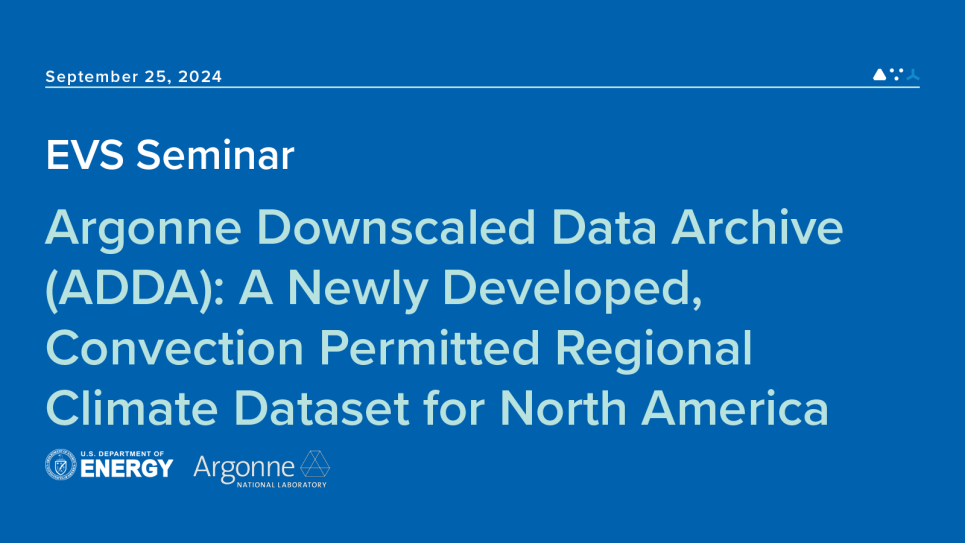
Argonne Downscaled Data Archive (ADDA): A Newly Developed, Convection Permitted Regional Climate Dataset for North America
This presentation introduces a newly developed, dynamically downscaled regional climate dataset that covers the North American continent and the surrounding ocean, namely Argonne Downscaled Data Archive (ADDA). ADDA has two main components: the first consists of 20-year reanalysis driven regional climate simulations for historical climate, while the second includes Earth System Model (ESM) driven simulations for both past and future projections under multiple greenhouse gas emission scenarios. ADDA is available in two versions: ADDA v1 offers a spatial resolution of 12 km and a temporal resolution of 3 hours, while ADDA v2 provides a higher spatial resolution of 4 km, an hourly temporal resolution, and a wider domain.
ADDA v1 has been extensively evaluated and used in various applications, including regional resiliency assessments program (RRAP) funded by Department of Homeland Security, risk evaluations for critical infrastructure, and climate change impact studies on soil and groundwater. This has led to numerous peer-reviewed publications (e.g., Brown et al., 2021; Gamelin et al., 2022; Pal et al., 2023; Pringle et al., 2021; Wainwright et al., 2022).
ADDA v2, which is currently in progress, covers an even larger area, including all of Alaska, most of Mexico, and the Caribbean islands. It offers extensive opportunities to assess the local impact of natural hazards and extreme events, such as tropical and extratropical cyclones, drought, wildfire, and heat/cold waves, particularly in previously underrepresented regions within a changing climate. As ADDA v2 is being developed, we are simultaneously conducting validation efforts. In the early stages of our evaluation, this presentation will cover our assessments of precipitation and North Atlantic hurricanes, using a 20-year historical period from ERA5 driven ADDA v2 to evaluate representation and climatology.